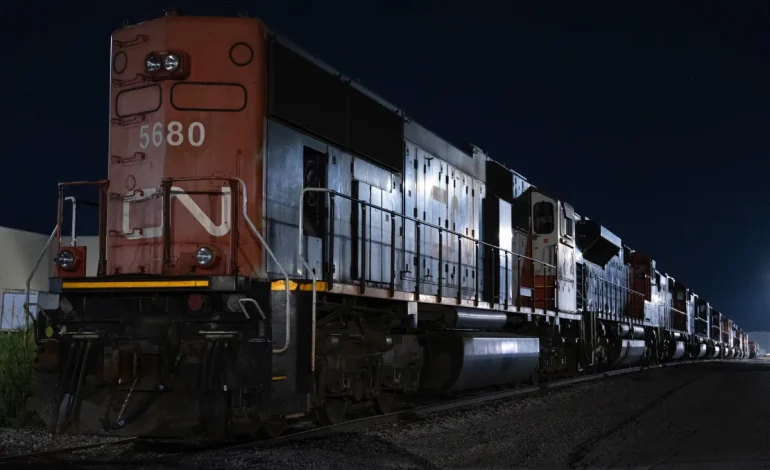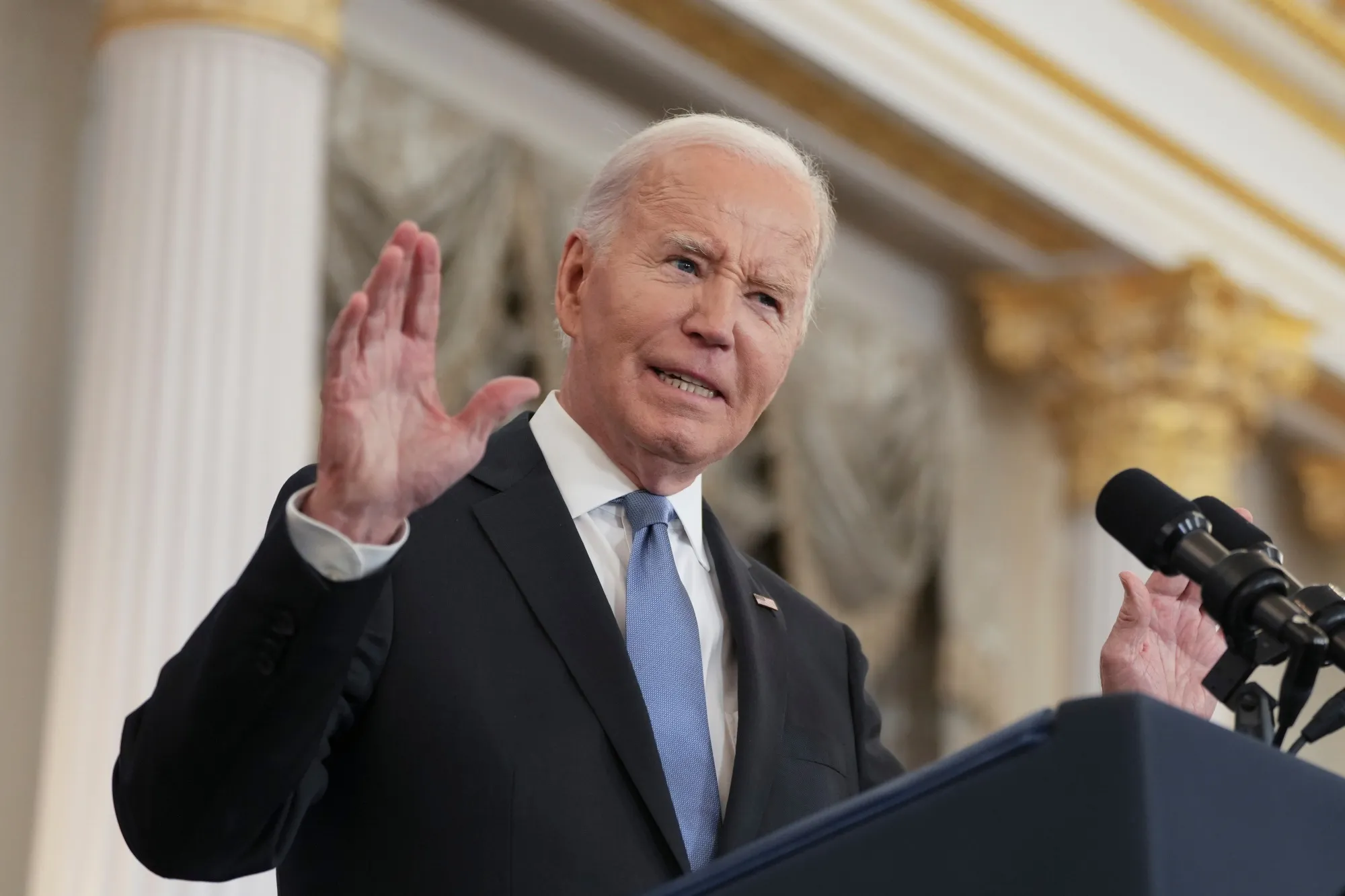Canada’s Major Freight Railroads Cease Operations, Impacting 9,000 Teamsters Union Members

Canada’s two major freight railroads have halted their operations, resulting in the lockout of 9,000 Teamsters union members who operate the trains, a move that could significantly impact both the Canadian and U.S. economies, according to management of the companies involved.
“We’re right up against the fall peak shipping season. You have a new Canadian grain crop coming in, the first not impacted by drought in two years,” Waldron told the broadcaster ahead of the lockout. “You have Christmas presents in containers arriving at ports. If this pushes further into fall shipping period, the consequences are going to be worse.”
The Teamsters union says it has been seeking a contract that both sides can live with, but that demands by the railroads would reduce the amount of rest and increase safety risks.
“Throughout this process, CN and CPKC have shown themselves willing to compromise rail safety and tear families apart to earn an extra buck. The railroads don’t care about farmers, small businesses, supply chains, or their own employees. Their sole focus is boosting their bottom line, even if it means jeopardizing the entire economy,” Paul Boucher, president of the Teamsters Canada Rail Conference, said in a statement early Thursday.
But the railroads deny that the changes they are seeking would increase safety risks, saying all proposals provide greater safety protections than required by recently strengthened Canadian regulations.
The companies said it is the union’s fault that there could not be an agreement reached before the deadline. They both called on the government to step in and refer the dispute to binding arbitration, which it has thus far refused to do.
The chambers of commerce in both the United States and Canada issued a joint statement Tuesday calling on the Canadian government to take action to keep the railroads working.
“A stoppage of rail service will be devastating to Canadian businesses and families and impose significant impacts on the US economy,” they said. “Significant two-way trade and deeply integrated supply chains between Canada and the United States mean that any significant rail disruption will jeopardize the livelihoods of workers across multiple industries on both sides of the border.”
Potential economic losses
Economists say there isn’t nearly enough capacity on trucks available to handle the freight normally carried by the Canadian railroads.
A Tuesday report from Anderson Economic Group, a Michigan research firm that has expertise estimating the economic impact of work stoppages, said a three-day strike would cause $300 million (407 million Canadian dollars) of economic damage, while a seven-day strike would bring losses to more than $1 billion (1.4 billion Canadian dollars).
A shutdown of only a few days would limit the economic impact but still cause problems, said Kristin Dziczek, policy advisor in the Federal Reserve Bank of Chicago’s research, policy, and public engagement division.
“It will take weeks to unwind the problems caused by a shutdown of even a few days because things will end up not where they’re supposed to be,” she said.
And because of the risk of a work stoppage, both railroads stopped taking shipments of various hazardous materials last week so that those items would not be stuck on trains unable to be delivered. That is already causing some disruptions, according to John Drake, the US Chamber’s vice president of transportation, infrastructure, and supply chain policy.
“We’re already hearing from businesses not seeing their shipments move,” he said.

Spokespeople for the railroads said management needed to move ahead with the lockdown plans because they couldn’t wait for the union to spring a strike on them with only the 72 hours of notice that is required by Canadian law.
“We can’t shut down a rail network by just flipping a switch,” Jonathan Abecassis, spokesperson for Canadian National, told CNN Wednesday ahead of the lockout. “We needed to start a safe and secure shutdown.”
Canada does not have the same railroad labor law as the United States that would allow Prime Minister Justin Trudeau to block a strike or lockout while a panel weighs the demands of the two sides and makes recommendations. That’s what happened in 2022 when President Joe Biden and Congress each took action to prevent a strike by 13 rail unions spread across the four major US railroads.
Canadian Labor Minister Steve MacKinnon recently met with union and management negotiators in an unsuccessful attempt to reach a deal. While he has the authority to refer the matter to binding arbitration—a solution advocated by the railroads and opposed by the unions—the Trudeau administration has thus far rejected this option.








